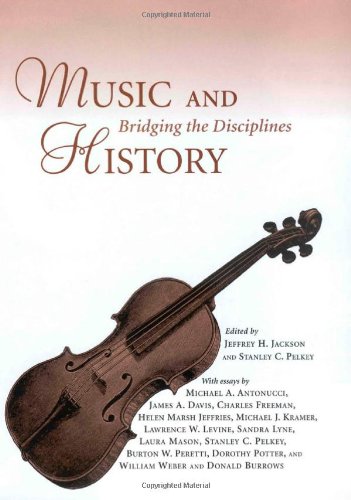

Most ebook files are in PDF format, so you can easily read them using various software such as Foxit Reader or directly on the Google Chrome browser.
Some ebook files are released by publishers in other formats such as .awz, .mobi, .epub, .fb2, etc. You may need to install specific software to read these formats on mobile/PC, such as Calibre.
Please read the tutorial at this link: https://ebookbell.com/faq
We offer FREE conversion to the popular formats you request; however, this may take some time. Therefore, right after payment, please email us, and we will try to provide the service as quickly as possible.
For some exceptional file formats or broken links (if any), please refrain from opening any disputes. Instead, email us first, and we will try to assist within a maximum of 6 hours.
EbookBell Team

0.0
0 reviewsThis book begins with a simple question: Why haven't historians and musicologists been talking to one another?
Historians frequently look to all aspects of human activity, including music, in order to better understand the past. Musicologists inquire into the social, cultural, and historical contexts of musical works and musical practices to develop theories about the meanings of compositions and the significance of musical creation. Both disciplines examine how people represent their experiences. This collection of original essays, the first of its kind, argues that the conversation between scholars in the two fields can become richer and more mutually informing.
The volume features an eloquent personal essay by historian Lawrence W. Levine, whose work has inspired a whole generation of scholars working on African American music in American history. The first six essays address widely different aspects of musical culture and history ranging from women and popular song during the French Revolution to nineteenth-century music publishing in Philadelphia, Pennsylvania. Two additional essays by scholars outside of musicology and history represent a new kind of disciplinary bridging by using the methods of cultural studies to look at cross-dressing in nineteenth- and early twentieth-century opera and blues responses to lynching in the New South. The last four essays offer models for collaborative, multidisciplinary research with a special emphasis on popular music.
Jeffrey H. Jackson, Memphis, Tennessee, is assistant professor of history at Rhodes College. He is the author of Making Jazz French: Music and Modern Life in Interwar Paris. Stanley C. Pelkey, Portage, Michigan, is assistant professor of music at Western Michigan University. He is a member of the College Music Society, and his work has appeared in music-related periodicals.